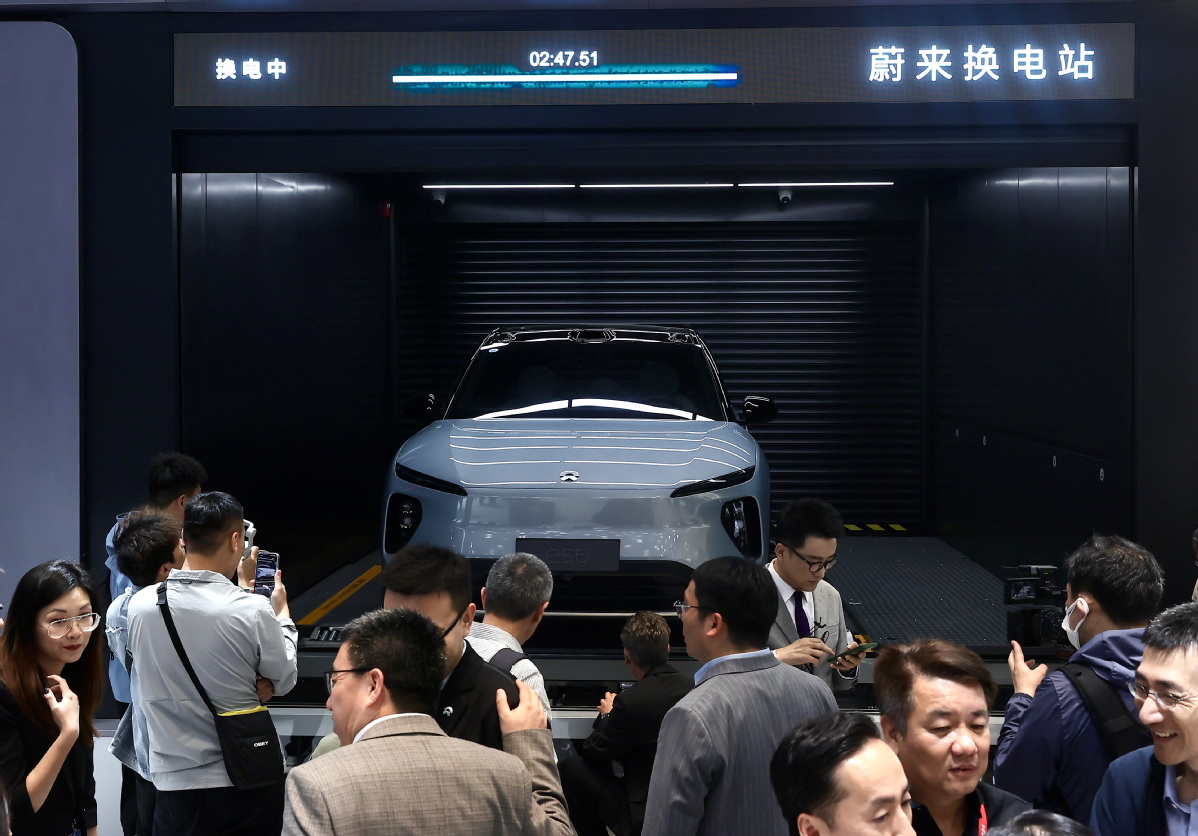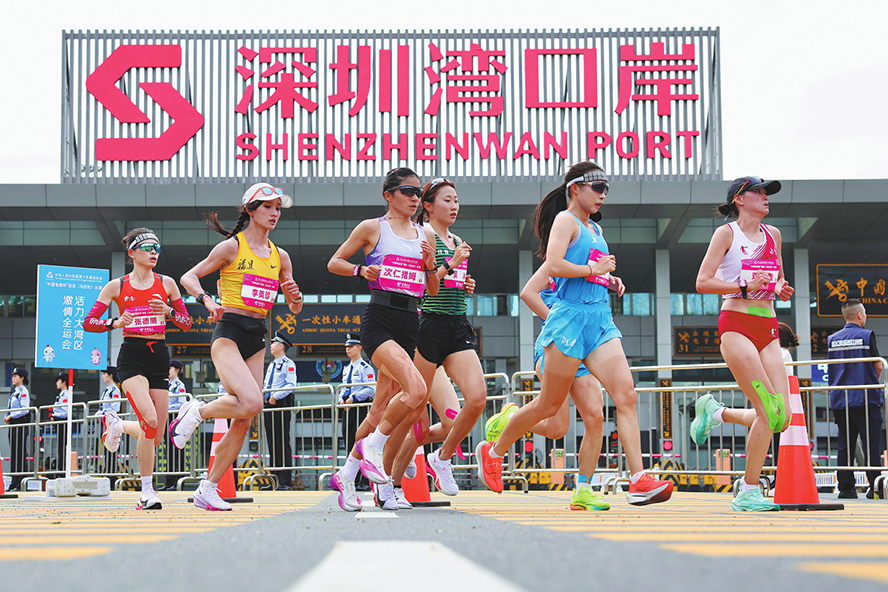Battery-swapping boost as Nio makes deal with FAW
By CAO YINGYING | CHINA DAILY | Updated: 2024-05-27 09:13

Chinese electric vehicle startup Nio signed a cooperation agreement for battery swapping with State-owned automaker FAW Group last week, broadening its battery-swapping alliance.
The two sides will collaborate across battery technology standards, research and development of chargeable and swappable battery vehicle models, battery management, operation and charging infrastructure development.
FAW is the seventh automaker to partner with Nio on battery swapping, following similar agreements with GAC earlier in May, and Geely and Changan in 2023.
Nio is also collaborating with energy companies like Sinopec, China National Offshore Oil Corporation and China Southern Power Grid to advance the battery swapping ecosystem across China.
In the first half of April, new energy vehicle sales surpassed half of the total for the first time, but challenges like inadequate charging infrastructure are still posing a hurdle. That is why automakers are looking beyond traditional charging piles to explore battery swapping as a supplementary energy replenishment option, said industry experts.
One of the key advantages of battery swapping is the ability to replace an empty battery with a fully charged one in just a few minutes. Nio said its upcoming third-generation swapping stations are capable of completing this process in three minutes.
In addition, battery swapping helps automakers maintain batteries, prolonging the life of the battery, which is the most expensive part of an EV, representing around 40 percent of the total vehicle cost.
According to the statutory eight-year or 120,000-kilometer battery warranty standard, nearly 20 million NEVs will face the expiration of their battery warranty over the next eight years. It will cost tens of thousands to 200,000 yuan ($27,600) to replace a battery.
However, the battery swapping faces challenges due to high investment needs, complex construction and the absence of standardized swapping protocols, leading to delays in its adoption.
Nio has been betting heavily on EV infrastructure of both battery-swapping and charging stations. As of May 21, it has established 2,420 battery swap stations, the largest battery swapping network nationwide, and offered more than 44.5 million battery swap services.
The total cost of constructing a Nio first or second-generation battery swapping station ranges from 1.5 to 3 million yuan, according to industry experts.
Nio CEO William Li said that its battery swapping stations need to handle 60 swaps per day to break even. The company expects its battery-swapping services to earn $10 billion annually when its user base grows by 100 times from half a million units currently.
As such, Nio has made its battery swapping services available to the public since 2023 and is encouraging other automakers to participate in its battery swap alliance.
Li likens Nio's battery swap network to Amazon Web Services, which are widely utilized cloud computing platforms, emphasizing ongoing investment for network growth. A robust ecosystem can emerge with increased stations and partners.
A collaborative alliance is crucial for developing the battery swapping ecosystem, which enables different brands to share swapping stations, enhancing the compatibility and convenience of EVs and benefiting all automakers involved, according to industry experts.
Kaiyuan Securities predicts that the market size of China's battery swapping industry chain is expected to reach 133.4 billion yuan by 2025. Oriental Securities forecasts that domestic battery-swapping EV models are expected to reach 30 percent of the total EV models by 2025.
Outside China, Stellantis, which owns brands from Peugeot to Maserati, is considering the technology too. It will integrate the technology this year in Spain, according to its deal made in December with San Francisco-based Ample.
























